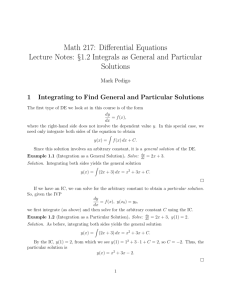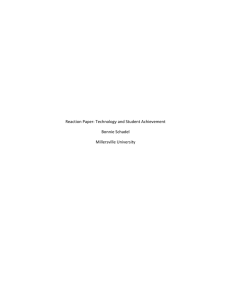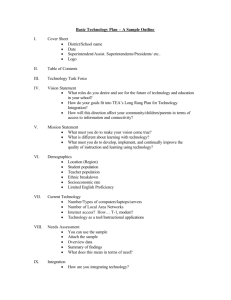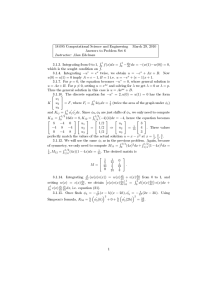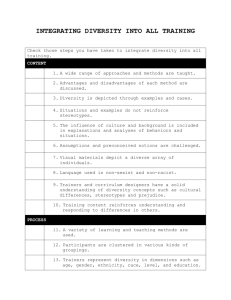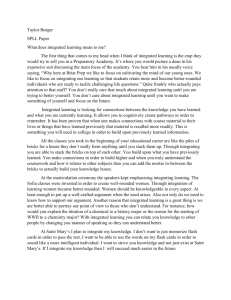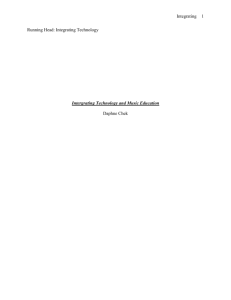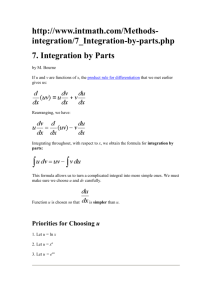1. Why should we integrate the four skills?
advertisement
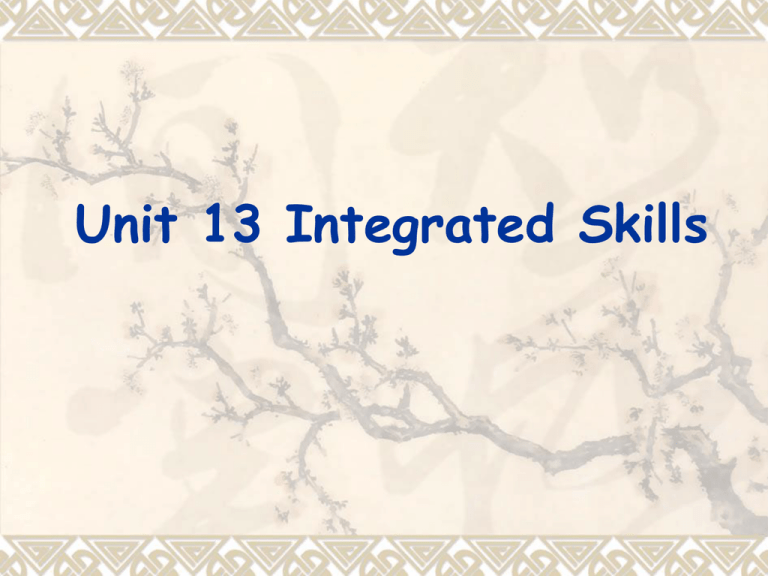
Unit 13 Integrated Skills Teaching objectives By the end of the lesson, students should be able to: know how to integrate the four skills know the implications of integrating the four skills for teaching know the limitations of integrating the four skills Teaching contents 1. Why should we integrate the four skills? 2. How can we integrate the four skills? 3. What are the implications for teaching? 4. What are the limitations of integrating the four skills ? 1. Why should we integrate the four skills? When we communicate, we often use more than a single language skill. Integrating the skills allows you build in more variety into the lesson because the range of activities will be wider. Integrating the skills means that you are working at the level of realistic communication, not just at the level of vocabulary and sentence patterns. 2. How can we integrate the four skills? Simple integration: The easiest form of integration is within the same medium (either oral or written), from receptive to productive skills. Complex integration: This involves constructing a series of activities that use a variety of skills. In each of the activities, there is realistic, communicative use of language. 3. What are the implications for teaching? Focus on discourse That integration of the four skills is concerned with realistic communication means that we are teaching at the discourse level, not just at the level of sentences or individual words and phrases. Adjusting the textbook contents Adjusting the timetable 4. What are the limitations of integrating the four skills? Integrating the four language skills can be demanding of the teacher. We need to have a good understanding of discourse, and to be able to use textbooks flexibly. This can also be time-consuming, requiring a lot of preparation. Another limitation is the problem of designing suitable materials that take account of students' different skill levels. Thank you
